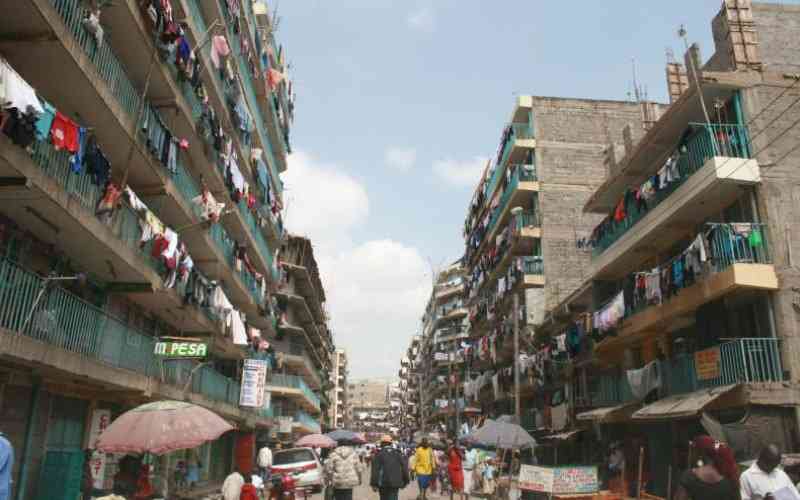
It is about 2 a.m., and there is no sign of quiet life in Pipeline, where nocturnal activities have peaked.
With booming music from several churches, bars, and hotels still filled with patrons, boda boda operators zoom from one direction to another, manoeuvring through the labyrinth that defines Pipeline—a densely populated informal settlement in Nairobi’s Eastlands.
Not left behind in the night hustle are M-Pesa and chemist operators, along with chapati vendors who have lined up along the narrow paths, lighting up the place that, until recently, was a ghost town by nightfall.
But the scenario has changed. Today, three supermarkets—Muindi Mweusi, Quickmart, and Jaza, which is the latest to join the fray—are competing for night shoppers.
Yet, the mention of Pipeline conjures images of a chaotic place characterized by congestion, prostitution, and poor infrastructure, making it a concrete jungle where high-rise buildings dominate the skyline.
Here, single rooms and bedsitters are in high demand thanks to its location and easy access to affordable road and railway transport.
A single room ranges between Sh3,500 and Sh5,000, while rent for a one-bedroom and two-bedroom apartment is around Sh11,000 and Sh13,000, respectively.
The fact that the estate is not far from Jomo Kenyatta International Airport makes it attractive and convenient for airport workers. During the night or early morning, you will see them being picked up or dropped off.
That is not all; it is near Industrial Area, which benefits from the bulk of workers residing in Pipeline, which serves as the first stop for most job seekers coming straight from upcountry.
“To many who now live in places like Ruai, Utawala, and Syokimau, they started humbly from Pipeline,” says Richard Kitheka, who now resides in Katani, having started his life in Pipeline.
It is a common sight for hawkers and small-scale traders dealing in all manner of wares to jostle for space along the paths. Business is booming, and the place is a magnet for sex workers who never seem to meet the high demand, especially at night, making the area lively.
According to Willy Kimani, former chief operating officer of Naivas Supermarkets and founder of Jaza, which runs a discounted shop model, he ventured into the area two months ago, opening a 24-hour supermarket due to the obvious opportunities.
“We realized that most of the residents working in town or at the airport come home late, so we decided to open this outlet to serve their shopping needs,” explains Kimani.
“We used to close at 10 p.m., but now we operate 24 hours, and the response has been positive. We’ve done the same in Utawala, Langata, and Donholm, and we plan to make more stores operate 24 hours,” he adds.
According to Betty Wamaitha, Quickmart Supermarkets' chief marketing officer, they do not regret opening a branch in Pipeline. It has turned out to be one of the busiest among their 60 branches across the country.
“Pipeline is very vibrant in the sense that you find human traffic continues late into the night, and we saw this as an opportunity to provide more time for shopping throughout the day and night,” says Wamaitha.
She notes that business has been good, with the store being busy, thanks to good security.
“Initially, the Pipeline branch was closing at 9:30 p.m., but we have been open 24 hours since August,” she says.
A few meters away from Quickmart stands Muindi Mweusi Chap Chap Supermarket, which has been operating 24 hours since early August, according to John Njoroge, the chief executive officer.
“Apart from Chap Chap, we also have Kayole Junction and Tassia branches, which are now operating 24 hours, and we were the pioneers of this non-stop operation trend,” he says.
Njoroge explains that they were initially closing at 10 p.m., but people were still streaming in. Instead of preventing them from entering, they decided to give them limitless time to shop.
According to Purity Wanjiru, a hotel owner, she has a constant flow of customers throughout the night and has employed five workers.
“We have customers who arrive in Pipeline at night from work or rural areas, and they have nowhere to eat, which is where we come in,” she says.
The decision to operate 24 hours was born out of a need to serve customers who arrived around 10 p.m., just when the hotel was preparing to close.